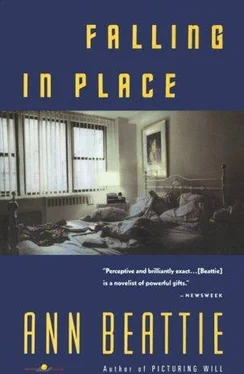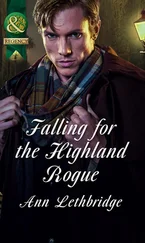Ann Beattie - Falling in Place
Здесь есть возможность читать онлайн «Ann Beattie - Falling in Place» весь текст электронной книги совершенно бесплатно (целиком полную версию без сокращений). В некоторых случаях можно слушать аудио, скачать через торрент в формате fb2 и присутствует краткое содержание. Год выпуска: 1991, Издательство: Vintage, Жанр: Современная проза, на английском языке. Описание произведения, (предисловие) а так же отзывы посетителей доступны на портале библиотеки ЛибКат.
- Название:Falling in Place
- Автор:
- Издательство:Vintage
- Жанр:
- Год:1991
- ISBN:нет данных
- Рейтинг книги:4 / 5. Голосов: 1
-
Избранное:Добавить в избранное
- Отзывы:
-
Ваша оценка:
- 80
- 1
- 2
- 3
- 4
- 5
Falling in Place: краткое содержание, описание и аннотация
Предлагаем к чтению аннотацию, описание, краткое содержание или предисловие (зависит от того, что написал сам автор книги «Falling in Place»). Если вы не нашли необходимую информацию о книге — напишите в комментариях, мы постараемся отыскать её.
Falling in Place — читать онлайн бесплатно полную книгу (весь текст) целиком
Ниже представлен текст книги, разбитый по страницам. Система сохранения места последней прочитанной страницы, позволяет с удобством читать онлайн бесплатно книгу «Falling in Place», без необходимости каждый раз заново искать на чём Вы остановились. Поставьте закладку, и сможете в любой момент перейти на страницу, на которой закончили чтение.
Интервал:
Закладка:
John Joel did not like his brother. His brother was always pulling and screaming. His brother was baby pretty, with shiny hair and big blue eyes, and his bedroom was as large as the living room at home. There were umbrella stands in Brandt’s room filled with his grandfather’s canes. They fascinated John Joel. If he could have anything his brother had, it would have been those canes: canes with ivory handles carved in the shape of leaping fish or dancing couples, ebony canes inlaid with mother-of-pearl vines that wound their way up the cane and burst into bouquets near the handle. There was one cane, long and thin, covered with the skin of a rattlesnake. When Brandt wasn’t in the room, John Joel loved to go in and spread the canes out like pick-up sticks and carefully lift and touch each one, examining the tiny carvings that were much more interesting than the carvings on his grandmother’s chairs, smelling the way the different canes smelled. The rattlesnake cane smelled like soap. You could see the tongue of the lion’s head in one of the canes, and he liked to touch the tip of his tongue to the wooden tongue, to hold the cane away from his face and glare at it, to imagine that he was as powerful as the squinting, roaring lion.
He was at his grandmother’s house because in the morning, when his father drove into New York, he was going with him. He was going to the orthodontist because his front teeth were starting to stick out. Then his father’s friend Nick was taking him to the Whitney to see a sculpture show, and in the afternoon he and his father and Nick were having lunch, and then his father was taking him home. His father had asked him if he would like to sit around his office until five o’clock, and he had said that he would, but apparently his father understood from his tone of voice that he didn’t delight in the idea. (John Joel heard his father explaining this to his mother on the phone the night before. “Don’t think I don’t accommodate myself to the children, too,” he had said.) The other time John Joel had sat around his office his father had refused to give him any more money for the candy machine after the first quarter, and he had stayed on his father’s sofa reading comics for hours, while his father picked up the telephone, said hello, and tilted back in his chair, looking at the ceiling and sighing, saying hardly anything except “It figures.” Nick came in a lot, though, and that was nice. He liked Nick pretty well. Well enough to wish that Nick was his father instead of John. Last year at a Fourth of July party on top of somebody’s roof in New York, Nick had followed John Joel into the kitchen to say that he didn’t like fireworks either, and sympathized with him: Without a few gin and tonics, he said, he wouldn’t have been smiling either. He had shown John Joel where the television was and found him a program he liked. “Even their goddamn sparklers feel like needles shooting into your hand,” Nick had said. Nick had stared at his hand. He had been holding a wet glass, full of gin and tonic. He had fished out the lime and given it to John Joel. “It’s a jaundiced cherry,” he had said, probably knowing that John Joel wasn’t fond of limes, but wanting to give him something anyway. At least Nick told jokes and laughed; his father turned all jokes into serious occasions, or into excuses to give lectures. The other nice thing about that Fourth of July was that Mary had gone to spend the night with Angela, and Brandt had had a cold and stayed in Rye. After the party on the roof, his parents and Nick and Nick’s girlfriend Laurie had gone to see a James Bond movie. Nick had smuggled a flask into the movie house, and as he got drunker, he got more and more angry about the picture. Later, when Nick and the girl were dropped off at Laurie’s apartment, his mother had gotten angry at his father: Interesting, she said, that he knew where her apartment was without being told. Was that what was in vogue now, leaving your wife for a young black woman and then raving about sexism in James Bond movies? His father had defended Nick; he had said that Nick was just drunk, that Laurie was a very nice woman, and that he had no apologies to make about knowing where she lived because several times when he had his car in town he had dropped Nick there after work, on his way back to Rye, and he had even stopped in for a drink. “That means a mad orgy,” his father had said. Then she had tried to argue with John Joel. She had asked why Nick took him inside and parked him in front of the television. “I was in there already,” he had said. “Why?” his mother had asked. So he had echoed Nick, and said that the sparklers were like needles. His mother had turned around and looked at his father. “That’s what he thinks the Fourth of July is,” she had said. “Needles going into your hand.” “He thinks what he thinks,” his father had said. “That’s right,” his mother said. “Everything’s cool: screwing black women ten years younger than you, boozing in the movie theater, taking every occasion to get drunk.” “You don’t see him on every occasion,” his father had said. John Joel had curled up in the back seat and stopped listening to them. Listening to them made him tired, and the night was over, and pretty soon they would be back at his grandmother’s, where all the lights would be on, even though she and Brandt were asleep, so that when they came in they wouldn’t knock over any of the vases. Then, when everyone was finally in bed, he could go downstairs and open the cabinets and eat. He planned to eat the rest of the M&M’s, and to skip a few of them across the floor for Henri to chase. When his father put on the car radio, that meant that no one was to talk.
“What are we doing this Fourth of July?” he asked his father on the ride into New York.
“I hadn’t thought about it. What do you want to do?” his father said.
“Are we going somewhere?”
His father looked at him. His father was driving fast, and if his mother had been there, she would have made him slow down. “I just asked what you wanted to do,” his father said.
“Nothing,” John Joel said. “I just wondered.”
“Did you decide you liked fireworks?”
“I like fireworks,” John Joel said.
His father looked at him again but didn’t say anything. Then he put on the radio. “Hey. Billie Holiday,” his father said. “Listen to this.”
They listened to the song.
“Do you know who she was?” his father said.
“Black,” John Joel said.
“Black?” his father said. His father looked at the roof of the car, shifting in the seat to lean back, the way he did in his office when he got a phone call. “Yes,” his father said. “But I’m not sure that really gets to the heart of Billie Holiday.” The news came on and his father changed the station. “Maybe Eldridge Cleaver would think so,” his father said. His father changed lanes.
“The old Eldridge Cleaver.”
“The last day of school Bobby Pendergast brought snakes to school. Things that are called snakes. You light them and they go chizzz and curl up and burn. They look like a black snake when they’re burned out.”
“You want me to get some of those for the Fourth of July?”
“On the Fourth of July when Mary’s curled up asleep, you can light her,” John Joel said.
His father was changing lanes again. He looked at John Joel and cut the wheel, making the car swerve back to where he had been. When the driver behind him honked his horn, John honked back and flashed his brake lights. “Mary,” his father repeated. “A joke, right? I don’t really have to pay for a child shrink, too, along with an orthodontist.”
“You don’t have any sense of humor,” John Joel said.
“Don’t criticize me. It’s ten in the morning and I’m late for work so I can drop you at this orthodontist’s, who is the only acceptable orthodontist in the world according to your mother’s greal pal Tiffy whatever-her-name-is.”
Читать дальшеИнтервал:
Закладка:
Похожие книги на «Falling in Place»
Представляем Вашему вниманию похожие книги на «Falling in Place» списком для выбора. Мы отобрали схожую по названию и смыслу литературу в надежде предоставить читателям больше вариантов отыскать новые, интересные, ещё непрочитанные произведения.
Обсуждение, отзывы о книге «Falling in Place» и просто собственные мнения читателей. Оставьте ваши комментарии, напишите, что Вы думаете о произведении, его смысле или главных героях. Укажите что конкретно понравилось, а что нет, и почему Вы так считаете.












